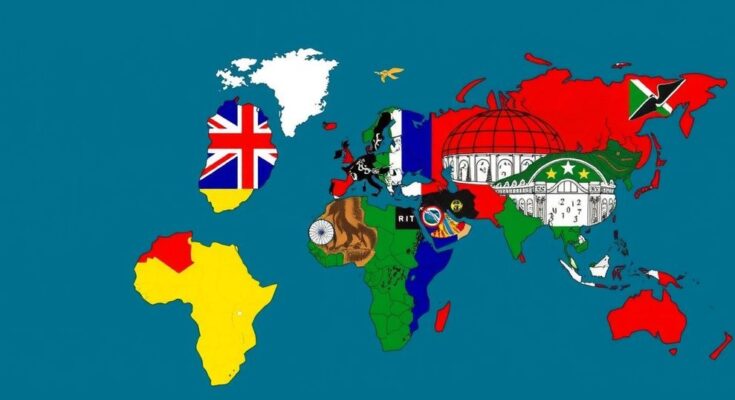Leaders of the Commonwealth gather in Samoa to discuss climate change and reparations for slavery. With small island nations at risk from rising sea levels, urgency is expressed for climate action. Additionally, there is a push for dialogue on reparations for the transatlantic slave trade. British Prime Minister Kier Starmer has stated the UK will not formally address reparations but is open to discussions. Some nations see reparations as essential for addressing ongoing racial inequalities.
The Commonwealth of Nations convenes in Samoa to address pressing global issues, notably climate change and the contentious subject of reparations for historical injustices associated with the transatlantic slave trade. Kings Charles III, alongside leaders and delegates from 56 member states, participates in this significant summit designed to foster dialogue on these critical challenges. As numerous Commonwealth states are vulnerable to climate change, particularly small island nations threatened by rising sea levels, the urgency of climate action has emerged as a predominant theme. United Nations Secretary-General Antonio Guterres has highlighted that ocean temperatures in the Pacific Islands are escalating at a rate threefold that of global figures, emphasizing that these populations are exceptionally susceptible to the repercussions of climate change. Australian Foreign Minister Penny Wong remarked, “Climate change is an existential threat. It is the number one national security threat. It is the number one economic threat to the peoples of the Pacific and to many members of the Commonwealth.” Furthermore, several African nations have drawn attention to the worsening impacts of climate change on food security. During this summit, leaders are anticipated to declare their commitment to ocean protection and to address the pressing challenges of climate change. Equally significant within the summit’s agenda is the advocacy for reparations from Britain in recognition of its role in the transatlantic slave trade. This issue has garnered renewed attention globally, particularly within the Caribbean Community (CARICOM) and the African Union. Despite British Prime Minister Kier Starmer’s assertion that the UK will not formally address reparations at this summit, he expressed readiness to engage in discussions with nations seeking dialogue on the topic. Although some voices oppose the notion of reparations, arguing that contemporary nations should not be held accountable for historical transgressions, proponents insist that the enduring impacts of slavery manifest in deep-seated racial disparities warrant rectification. Furthermore, a CARICOM representative noted that the Commonwealth Heads of Government Meeting provides a crucial opportunity for addressing reparatory justice. Kingsley Abbott of the University of London’s Institute of Commonwealth Studies emphasized the necessity of dialogue, stating, “It is a priority for many of the Commonwealth’s member countries and whenever those affected by atrocities ask to talk, there should always be a willingness to sit down and listen.” Historically, the transatlantic slave trade led to the abduction and sale of approximately 12.5 million Africans, marking a dark chapter that has left an indelible impact on the descendants of those affected, as well as on the societies that thrived through their exploitation. This summit seeks to navigate the complexities of these dialogues amid the backdrop of an evolving global landscape.
The Commonwealth of Nations encompasses a group of countries with historical ties to the British Empire. As many members are small, low-lying island nations, they face existential threats from climate change. The issue of reparations for slavery has recently gained traction in global discourse, prompted by a growing recognition of the historical injustices that continue to affect racial inequality today. The summit convening in Samoa provides a platform for discussing these pressing issues, which not only pose immediate challenges but also necessitate a reckoning with history.
The Commonwealth meeting in Samoa signifies a pivotal moment for member states to confront urgent issues of climate change and the enduring implications of the transatlantic slave trade. As leaders engage in critical discussions regarding ocean protection and reparations, the outcomes of this summit could potentially shape future international dialogues on justice and ecological resilience.
Original Source: www.voanews.com




